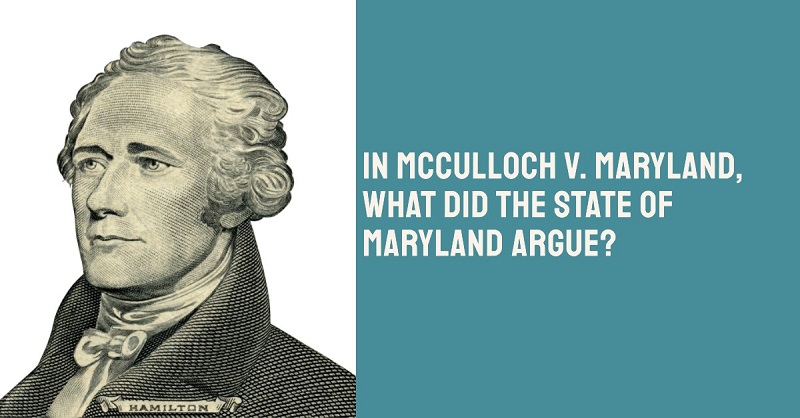In McCulloch v. Maryland, What Did the State of Maryland Argue?

The landmark Supreme Court case, McCulloch v. Maryland, has had far-reaching implications in shaping the complex fabric of federalism in the United States. The case, decided in 1819, touched on the balance of power between the federal and state governments, setting legal precedents that continue to guide judicial interpretations. In this article, we explore the arguments put forth by the State of Maryland during the proceedings.
Background of the Case
McCulloch v. Maryland arose from the aftermath of the Congressional charter in 1816 for the Second Bank of the United States, a federal entity. Opposition to this bank was widespread among states fearing federal overreach. Maryland, one of the states in opposition, enacted a law in 1818 that imposed a heavy tax on any bank operating within its borders not chartered by the state. The law was indirectly targeting the Baltimore branch of the Second Bank of the United States.
When James W. McCulloch, the cashier of the Baltimore branch, refused to pay the tax, Maryland sued. The case was appealed all the way to the Supreme Court, where the arguments of Maryland were thoroughly examined.
The Arguments of Maryland
The State of Maryland based its arguments on several points rooted in their interpretation of the U.S. Constitution. Essentially, Maryland’s arguments focused on state rights and the limitations of federal authority.
- Absence of Constitutional Authority: Maryland argued that the Constitution does not explicitly provide Congress with the power to charter a bank. As such, the creation of the Second Bank of the United States exceeded Congressional authority as stipulated in the Constitution.
- Strict Interpretation of the Constitution: Maryland espoused a strict interpretation of the Constitution. It held that if the Constitution did not explicitly grant a power, that power was implicitly denied. This is known as the doctrine of ‘implied powers’.
- State Sovereignty and Right to Tax: The state argued that as a sovereign entity, it had the right to tax any business operating within its borders, even if that business was a federal institution. This argument underscored Maryland’s belief in the primacy of state rights over federal encroachment.
- Tenth Amendment: The state invoked the Tenth Amendment, which reserves powers not delegated to the federal government by the Constitution, nor prohibited by it to the states, to the states respectively, or to the people. Maryland maintained that the power to charter a bank was not a delegated power of the federal government, thus, it rested with the states.
Outcome and Implications
Despite Maryland’s arguments, the Supreme Court, led by Chief Justice John Marshall, ruled in favor of McCulloch, holding that the Constitution grants Congress implied powers to implement the Constitution’s expressed powers, and that state action may not impede valid constitutional exercises of power by the federal government.
This decision reinforced the principle of federal supremacy over states, with Marshall famously stating, “the power to tax involves the power to destroy”. Hence, a state could not use its taxing power to destroy a federal institution.
The arguments of Maryland in McCulloch v. Maryland offer a perspective on the debate around state sovereignty and the boundaries of federal power. The case continues to inform the discourse around these issues and stands as a pivotal moment in the annals of American jurisprudence.








